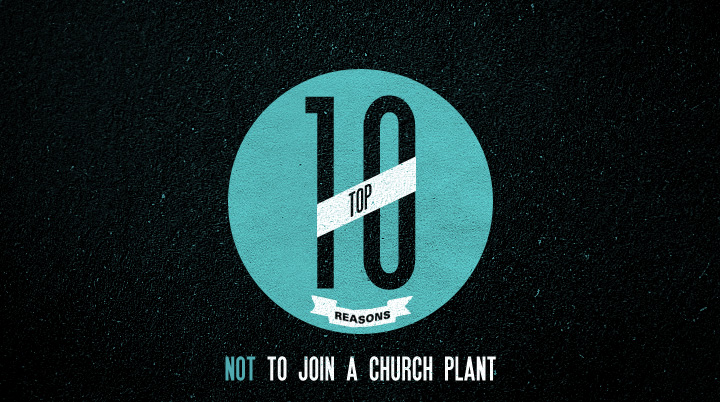
THE CROSSING BLOG
Like a Liver or a Big Toe
From Porterbrook:
Remember that the church is neither an end in itself, nor is it merely a means to an end…Church is a place where Jesus reigns and where people will catch a glimpse of people loving and serving one another. Church is God’s Kingdom with flesh on it. It is a glorious phenomenon.
The Crossing is a church plant, and one of the greatest personal benefits that I have received from being part of this church plant has been a greater understanding of what church actually is. That’s not to say that my previous church experience was devoid of this, but this reality has come into sharper focus as I’ve matured alongside this growing body.
In so doing, though, it has become rather easy to think of building the church as an end in itself. And when I notice myself thinking in this way, the pendulum swings (as pendulums often do) to the other side, which is isolation.
I regularly find myself way too focused on how to gather more people by meeting with them, inviting them to my Life Group, or to a Sunday gathering, or to any other church community related activity. This happens until I notice my ability to simply sit and adore Jesus has become severely diminished. The response to that is often frustration at my busy schedule (and the people who fill it) and a tendency to seclude myself from others so that I can have those personal quiet times in devotion. This usually continues until I notice that I’ve been so isolated from community that I get frustrated with myself yet again, and the cycle starts over.
Neither of these extremes is healthy, and I propose trying to strike a balance is not the answer.
Rather, what I think is right is for us to put Christian community in its proper context. Simply, church is the expression of God’s people as they come together to live in a community that models what reconciliation with God looks like by living with each other in a reconciled way. This means we can forgive each other (Ephesians 4:32), serve one another (Philippians 2:3-4), pray with one another (1 Thessalonians 5:17), speak the word to each other (Colossians 3:16), eat with one another (Acts 2:42), etc.
The church is a spiritual community. Therefore in order to have our spiritual satisfaction, it’s helpful to understand that our spiritual life is not confined to personal devotion time, though not to the utter neglect of that time. But is it possible that Christian community can be utilized for our growth in godliness in a more healthy and significant way than we typically conceive?
So what does this mean for our church context?
Firstly, we need to fight against the idea that church is something that you attend. Instead, church is something that you participate in. Like the liver participates in digestion and detoxification, or a big toe participates in balance. I have no body parts that merely attend my body.
Secondly, I want us to become a community that worships and enjoys Jesus through and with one another. The emphasis of the New Testament is that the church is the context in which worship, personal growth, community growth, and mission take place. This is in stark contrast to the popular view that spirituality takes place in one’s own quiet room or in the isolation of the mountains.
Let us consider whether or not there is something we could learn here that not only benefits our own personal walks, but also influences and builds the community of God that is The Crossing in Fort Collins.
Church Plants - To Join or Not To Join
This blog post was adapted from TheResurgence.com:

Top 10 Reasons to Join a Church Plant:
- If you want to see Jesus do something new and are sick of the status quo.
- If you dream of being part of something bigger than yourself.
- If you want to get into a fight/enter a battle for the kingdom of Christ.
- If you feel a constant itch to see people who don’t know Jesus come to know Jesus and you believe church planting is the best way for the gospel to advance.
- If you want to give your time, money, energy, and talents to starting something new and you want to make sacrifices to see a mission to succeed.
- If you fully support the vision, mission, doctrine, and leadership of a church plant.
- If you want your faith to grow and you want God to fundamentally meddle with and change your life.
- If you want to love your city.
- If you want to watch God move in ways you never imagined and you want an adventure (with all it’s discomfort and risk).
- If you’re not afraid to bank your life on Matthew 16:18 (“I [Jesus] will build my church and the gates of hell shall not prevail against it”).

Top 10 Reasons NOT to Join a Church Plant:
- If you’re looking for the next cool thing in town (We want to grow by conversion growth, not church-goer transfer growth).
- If you’re a Christian and you don’t like your current church (You will find reasons to not like this church).
- If you have a bad track record at churches of being unteachable and causing problems (You won’t change here, you’ll repeat the pattern).
- If you’re a consumer wanting to “go to church” once a week for a nice show (We are not a Sunday show, we are a community of disciples on a mission).
- If you want religion (This church will be built on the radical gospel of grace).
- If you have an agenda (We have our vision, our mission, and our values—your private agenda does not supercede them).
- If you’re a wolf (We will sniff you out).
- If you think this will be a nice little church that stays the same size, where everybody knows your name and you have my cell number on speed dial and we have a picnic lunch together every week (By God’s grace, we want to grow).
- If you think this will be easy and smooth (This will be hard and difficult; this will be a fight, a battle, and a challenging mission).
- If you want to hold onto your comfortable life (You must lose your life).
Also, a quote from Sir Ernest Shackleton, from the advertisement he used when recruiting men for his expedition to Antarctica in 1914:
- Men wanted for hazardous journey. Small wages, bitter cold, long months of complete darkness, constant danger, safe return doubtful. Honour and recognition in case of success.
Catalyst - The Spark for Change

For those of you who were unaware, this previous weekend was marked by a gathering of pastors and other leaders involved in the Crossway Chapel church planting movement (http://www.crosswaychapel.org/) for the third annual Catalyst church planting conference. It was held in our sister church Windsor Community. Represented there were leaders from:
Fort Collins, Colorado (www.mvcchurch.org, www.thecrossingfc.org)
Windsor, Colorado (http://www.windsorchurch.org/home/)
Ault, Colorado (http://www.highplainsharvest.org/)
Wilmington, North Carolina (http://www.crosswaywilmington.org/)
McMinnville, Oregon (http://creeksidemac.com/default.aspx)
Toms River, New Jersey (http://remedynj.com/)
Vsetin, Czech Republic (http://cb.cz/vsetin.majak/)
From the get go, the Crossing has been part of this church planting movement. And by God’s grace we will continue take part in the process of replicating healthy, doctrinally sound, gospel centered local churches that strive to make Christ known as we endeavor to remain such a church ourselves.
For those who were not there, the basic layout of the conference revolved around a series of five messages that sought to understand the various ways in which the words of Jesus in Mark 8:34-35 applied to church planting. These messages were punctuated by Q&A sessions with a panel as well as table discussions. I will very briefly discuss some of these here, but the messages and panel questions will be available for download in the near future, and I’ll provide the link as soon as I have it.
Being a Catalyst for Change – Tom Harcus
In this message, Tom Harcus from Crossway Chapel of Wilmington challenged us to lay aside the “consumer culture” that has invaded much of the American church and instead pick up the cross of “Kingdom culture.” There are flagrant differences between the two, but those that Tom highlighted most vividly were those that demonstrated where consumer culture tends to be passive, safe, and look only to the temporal, Kingdom culture is rooted in a proactive and risky approach to a life that sets its hopes in eternity. If we are to see drastic change for the Kingdom of God, we must be willing to take up the cross of difficulty, but we will gain a crown of glory in the process. In other words, it will be well worth it.
Missional Living – Eric Loyer
Eric Loyer from New Jersey (who preached at the Crossing on Sunday) delivered a message that took a deep and discerning look at the heart that is behind missional living. The idea of missional living stems from the thought that we ought to be intentional for the mission of God in the redemption of lost souls within the areas that God has placed us. However, instead of giving us a “how to” message or berating us for not living missionally enough, Eric went to the heart of what is needed for every person who desires to live missionally, and that is a firm faith and standing in the gospel of Jesus. Apart from the gospel, our intentions to live missionally will be compromised by either discouragement (pending failure) or pride (pending success) and thus we run the risk of “losing our souls” in the process. However, if we are firmly rooted in the gospel, our life will be a cross bearing missional response to that very gospel as we strive forward in the love of Christ.
Serving in Plurality – Tom Harcus
Plurality in leadership is the portrait we gain from the New Testament as to how local churches ought to be led. In this message, Tom made the point several times over by highlighting different aspects of Paul and Barnabbas’s ministry. He also shared a lot of personal stories about how God brought along different leaders for the church in Wilmington to complement the areas where he needed more strength. In having a plurality of leadership, though, there is a significant amount of having to die to oneself in order to create a culture of trust, accountability and transparency. Most successful church plants need multiple leaders that can spearhead different tasks and keep one another accountable not only in their ministry but also in their personal lives, namely in their marriage and with their family.
It’s Warfare – Mark Hotaling
Mark Hotaling from High Planes Harvest in Ault spoke on the reality of the fact that as the Kingdom of God advances into the world through the local church, and there will be opposition and difficulties to be encountered. Mark reminded us that the battle belongs to the Lord (1 Samuel 17:47), that one must consider the cost to be a church planter because it will be difficult (Luke 14:31-33), that one cannot and should not try to do everything on their own (2 Timothy 2:3-4), and lastly, that prayer is an absolute necessity in all of this (1 Chronicles 5:20). There is a significant cross to bear in planting a new church in order to win over lost souls to the Kingdom of God, and the Lord has granted success to Mark and his flock in this endeavor so far. So let us strive to do the same, keeping a watchful eye, and continuing to pray for them and ourselves in the process.
Responding to the Call – Dan Harty
Windsor’s Dan Harty delivered the final message of the conference. In it, he challenged us to be watchful for any signs that we are not standing firm in the gospel; namely by worrying more about the temporal than the eternal, complaining about a lost world more than we’re praying for it, praying for ourselves more than we pray for the conversion of our neighbors, considering safety and comfort as more valuable than having an impact for the Kingdom, trusting in ourselves rather than God, and thinking more about what we want to get, rather than what we want to give.
We were then challenged to look for God’s call in our life to go on a church planting team. How do we know we’re called, though? Dan answered this by saying we must “hear” the call, and then have it confirmed through a season of both personal prayer and prayer from others. And we must remember a call is often to go towards something, rather than to run away from something (like a difficult situation at our current church).
Following this, we watched a video involving some of the key leaders from Windsor Community and their apparent call to plant a church in Loveland, Colorado. They have prayed for a number of years to plant a church in Loveland and continue to feel the need and the urge for a gospel centered church to start there. We were challenged (and I challenge you) to consider whether or not God might have us serving in a new church in Loveland in which we will experience all the challenges and difficulties mentioned above by bearing the cross involved in church planting, but thereby gaining (and seeing) much life.
Conclusion
God is on a mission to redeem a people for Himself who are zealous for His fame (Psalm 8:1) and zealous for good works in this world (Titus 2:14). In His wisdom, He is sending His bride, the church, into all of the world to proclaim His excellencies (1 Peter 2:9) and call people to know, love, and worship Him as they come to be known by Him (Galatians 4:9) and learn of His love for them (John 3:16). In order to take part in this great and wonderful and satisfying work, it will require us to die to ourselves, but we know that in all of these things we end up gaining our life, and much more than that, we gain Christ and the joy of seeing His glory spread through the proclamation of His gospel.
Act Like Men!
In 1 Corinthians 16:13, Paul issues the men in the floundering Corinthian church with this charge: “Be watchful; stand firm in the faith; act like men; be strong.”
 Below is a video that we talked about at Man School this evening. Darrin Patrick—a leader of Acts 29 and pastor of The Journey in St. Louis, MO—has just released a new book called Church Planter: The Man, The Message, The Mission. The video below is a teaser for the book, and Patrick is calling out the men in our churches (pastors and leaders) to “act like men.” We have a generation of men who are seeking to prolong adolescence, refusing to take life seriously. Will this new generation of men lead the church to its demise, or will we turn from our laziness to courageous action so that we can be a part of God’s mission to redeem the world through the Gospel? Check out the video, and let’s act like men.
Below is a video that we talked about at Man School this evening. Darrin Patrick—a leader of Acts 29 and pastor of The Journey in St. Louis, MO—has just released a new book called Church Planter: The Man, The Message, The Mission. The video below is a teaser for the book, and Patrick is calling out the men in our churches (pastors and leaders) to “act like men.” We have a generation of men who are seeking to prolong adolescence, refusing to take life seriously. Will this new generation of men lead the church to its demise, or will we turn from our laziness to courageous action so that we can be a part of God’s mission to redeem the world through the Gospel? Check out the video, and let’s act like men.
